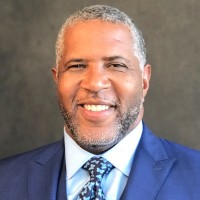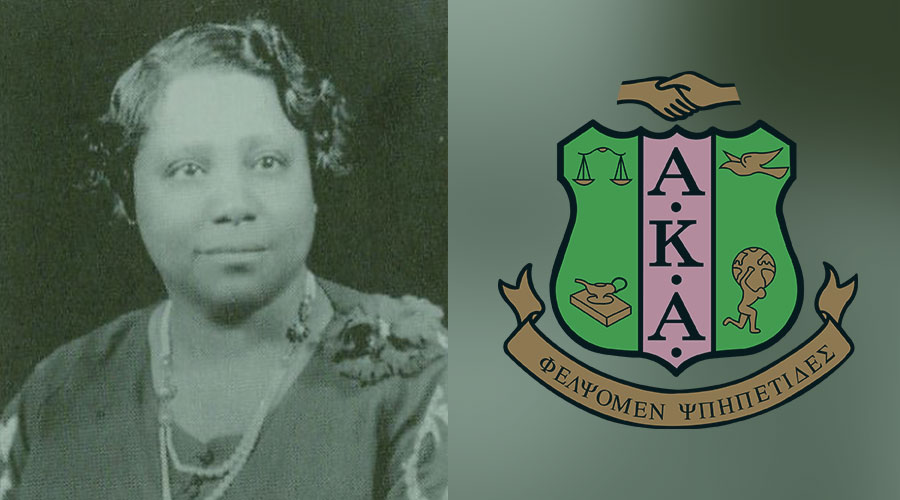- Ethel Hedgeman Lyle is one of the principal founders of Alpha Kappa Alpha and a leading figure in Black history.
- Founded in 1908, Alpha Kappa Alpha is the first Black sorority in the U.S.
- Today, Alpha Kappa Alpha has undergraduate and graduate chapters in countries across the world.
Since the beginning of Black Greek life in the U.S., Black sororities and fraternities have served as a testament to the strength and resilience of the community. These bastions of sisterhood and brotherhood have consistently provided a platform for individuals to develop professional skills and achieve academic excellence and personal growth. Many prominent individuals have attended Black fraternities and sororities as part of their educational and career journeys, including dealmaker and philanthropist Robert F. Smith (Alpha Phi Alpha); former U.S. Secretary of State Condoleezza Rice (Alpha Chi Omega); poet Langston Hughes (Omega Psi Phi); and American politician Shirley Chisholm (Delta Sigma Theta).
In addition, these centers of Greek life help promote unity, resilience and empowerment, especially within the Black community. The foundation of Black sororities throughout the U.S. stems from the trailblazing vision and efforts of Ethel Hedgemen Lyle.
Below, we discuss who Ethel Hedgemen Lyle was and how she shaped history. We also highlight what Alpha Kappa Alpha is, why Alpha Kappa Alpha was founded and the importance of Greek life to the Black community.
Who Is Ethel Hedgeman Lyle?
Ethel Hedgeman Lyle (also spelled Ethel Hedgeman Hedgemon Lyle by some sources) is one of the principal founders of Alpha Kappa Alpha (AKA) — the first Black sorority in the U.S. Lyle, also known as the “guiding light” of AKA, was born in 1887 in St. Louis, MO. At 20 years old, she became one of several women to earn a scholarship to attend Howard University, a historically Black college (HBCU) in Washington, D.C. Lyle was one of fewer than 1,000 Black Americans to attend a post-secondary institution at the time.
Early on in her academic career at Howard University, Lyle developed a vision for a community of women who share similar values and goals. Determined to bring her vision to life, Lyle partnered with eight other female students to establish AKA. After two years, Lyle graduated from Howard University with a liberal arts degree and was one of only 25 women to receive the degree between her years attending the institution.
Post graduation, Lyle moved to Oklahoma and then Illinois, where she defied societal norms by being the first Black woman to earn a Teacher’s Life Certificate from the Oklahoma State Department of Education. After getting married to her husband, George Lyle, she moved to Philadelphia, PA, and became an English public school teacher. Following her nearly 30-year teaching career, Lyle retired and created a chapter of the League of Women Voters and the Mother’s Club. In 1926, Lyle also founded and served as the first president of Omega Omega, the first AKA alumni chapter in Philadelphia. She served in several club leadership positions until her passing in November 1950.
Today, her life and legacy are honored by the efforts of AKA’s Gamma Omega chapter and its nonprofit, the Ivy Alliance Foundation. The partnership is working to transform her former home into the “Ethel Hedgeman Lyle museum.” In 2022, the organizations purchased Lyle’s former St. Louis home to create a museum to showcase incredible Black women of history, such as Lyle.


Get Industry leading insights from Robert F. Smith directly in your LinkedIn feed.
Get Industry leading insights from Robert F. Smith directly in your LinkedIn feed.
Alpha Kappa Alpha
In January 1908, AKA became an official student organization. In addition to Ethel Hedgemen Lyle, AKA founders include Anna Easter Brown, Beulah Burke, Lavinia Norman, Lillie Burke, Lucy Diggs Slowe, Margaret Flagg Holmes, Marjorie Hill and Marie Woolfolk (Taylor). Each of the nine founders was the academic leader of their respective class.
When AKA was first established, Lyle became its chairman. She also came up with the idea for AKA’s first symbol: a green ivy leaf with the sorority’s initials. The sorority’s co-founder, Beulah Burke, created the name of the sorority. She used the first three letters of the Greek words that make up AKA’s motto, “by culture and by merit.”
AKA officially became incorporated on January 29, 1913, thanks to the efforts of Nellie May Quander. Quander, who became an AKA member in 1910, initially formed a committee of two fellow sorority members and three organization officers to pursue incorporation. To gain more support, the committee recruited other members who desired to protect the sorority’s original ideals, brand and goals. AKA became the first Black Greek-letter organization to become incorporated.
Lyle and the other founders established AKA as a platform for Black women to thrive in the face of significant racial and gender barriers. The legacy of these women is present not only within the context of Black sororities but also in the pursuit of true diversity, equity and inclusion. Their legacy is a testament to the power of individuals who dare to dream of and pursue a more equitable future for all.
Alpha Kappa Alpha Today
Over the last 115+ years, Alpha Kappa Alpha has initiated more than 350,000 members and expanded to become an international organization. Currently, AKA has 1,064 undergraduate and graduate chapters serving 114,00 active members in 12 countries around the world.
Many talented women have pledged AKA, including actress and comedian Wanda Sykes and Vice President Kamala Harris., Over the last few decades, the organization has inducted several honorary AKA members, including singer Alicia Keys, filmmaker Ava DuVernay, Civil Rights activist Coretta Scott King, poet and activist Maya Angelou and engineer and astronaut Mae C. Jemison.
The Importance of Greek Life to the Black Community
Thanks to the hard work of Ethel Hedgeman Lyle and others, in 1930, a little more than 20 years after its creation, AKA became one of five Black Greek-letter organizations to make up the new National Pan-Hellenic Council (NPHC). Now known as the “Divine Nine,” the NPHC is the parent organization of the first nine Black Greek-letter sororities and fraternities. The organization was created to serve as a pillar of strength and support for the Black collegiate community. This was critical since these historically Black sororities and fraternities were developed during a time when Black Americans were denied many basic rights.
While each sorority and fraternity in the NPHC is unique, all are driven by three core tenets: scholarship, service and community. These tenets have inspired countless members of the NPHC to be a positive force of change on college campuses and throughout society.
Follow Smith on LinkedIn to learn more about other important topics and the lives of other legendary figures like Ethel Hedgeman Lyle.






